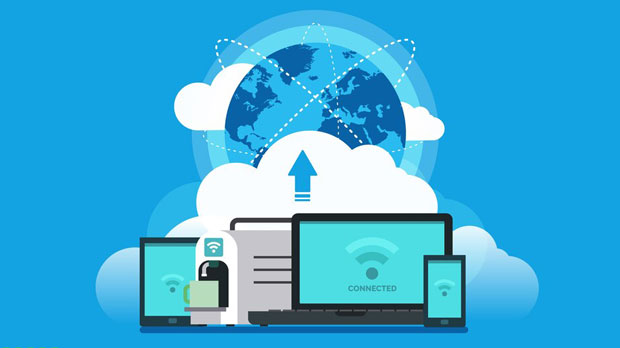In the realm of proxy servers, particularly when it comes to PC use, PYPROXY is often mentioned as a popular choice for utilizing Socks5. However, when seeking better performance, security, and ease of use for PC users, there are several other proxy tools worth considering. This article will explore alternatives that provide more reliable connections, superior compatibility with various applications, and better support for high-demand tasks. We will dive into these alternatives by examining their key features, advantages, and specific use cases, helping you understand which ones are better suited to your needs when compared to PyProxy. Introduction to sock s5 proxiesBefore diving into alternative options, it’s important to understand what Socks5 proxies are and why they are popular for PC users. Socks5 is a type of proxy that routes internet traffic through a server, providing anonymity and security by masking the user’s real IP address. It is particularly favored for its ability to work with a wide range of internet protocols (HTTP, FTP, and others) and provide a higher level of privacy and flexibility compared to traditional HTTP proxies.For PC users who want to maintain privacy, bypass geographical restrictions, or engage in tasks that require anonymity (such as gaming or streaming), Socks5 is an excellent choice. However, finding the right software to effectively manage Socks5 connections on PC is crucial, as not all proxy tools offer the same performance, security, or ease of use.Limitations of PyProxy for PC UsersAlthough PyProxy is a commonly used tool for socks5 proxy connections, it does have some limitations, especially for PC users who demand reliability and high-performance proxies. 1. Limited User Interface: PyProxy, being a Python-based tool, relies on command-line operations, which can be cumbersome for users who prefer a graphical user interface (GUI). This lack of GUI makes it less user-friendly, particularly for beginners or those who are not comfortable with programming.2. Performance Issues: PyProxy may not be the most efficient in terms of speed and performance. Users often report occasional drops in connection stability, slower speeds, and high latency, which can affect activities like gaming, streaming, or torrenting.3. Compatibility Problems: While PyProxy is effective in certain contexts, it can struggle with compatibility across different operating systems or applications. Some programs or websites may not work properly with PyProxy, which can be frustrating for users who rely on stable connections for their online activities.Top Alternatives to PyProxy for PC Use with Socks5While PyProxy is useful for basic Socks5 tasks, there are other tools available that are better suited for PC users seeking enhanced performance, security, and ease of use. Let’s take a look at some top alternatives.1. ShadowsocksShadowsocks is widely considered one of the best alternatives to PyProxy for Socks5 usage on PC. It is an open-source proxy software that supports high-speed internet connections, strong encryption, and stable performance, making it a popular choice for privacy-conscious users.Advantages of Shadowsocks:- High Performance: Shadowsocks is optimized for speed and performance. It’s capable of maintaining a stable and fast connection even under heavy load, which is ideal for gaming, streaming, and downloading large files. - Cross-Platform Compatibility: Shadowsocks supports multiple operating systems, including Windows, Linux, and macOS, ensuring smooth operation on various platforms. - User-Friendly Interface: Unlike PyProxy, Shadowsocks offers a clean, easy-to-use graphical interface, making it accessible for users without technical knowledge.- Strong Encryption: Shadowsocks uses robust encryption methods to ensure the safety of your internet traffic, offering an additional layer of security.Best Use Case: Shadowsocks is perfect for users looking for a reliable, high-speed proxy that works seamlessly across multiple platforms and supports high-performance activities.2. V2RayV2Ray is another powerful alternative that has gained significant attention for its versatility and feature-rich capabilities. V2Ray is more than just a Socks5 proxy; it is a comprehensive tool that supports multiple protocols, including HTTP, Socks5, and even custom protocols.Advantages of V2Ray:- Multiple Protocol Support: V2Ray supports a wide range of proxy protocols, making it more versatile than PyProxy and even Shadowsocks. Users can configure their proxies based on their specific needs, whether for simple web browsing or advanced use cases like VPN services. - Advanced Security Features: V2Ray provides robust security features, including advanced encryption methods and anti-censorship tools. It is ideal for users in regions with heavy internet restrictions or those who require an extra layer of protection. - Customizable and Flexible: V2Ray offers more customization options than PyProxy, giving users full control over their proxy configuration and enabling advanced users to optimize settings for specific tasks.Best Use Case: V2Ray is ideal for users who need maximum flexibility, security, and performance. It is especially useful for those in high-censorship regions or those with advanced technical requirements.3. ProxifierProxifier is another excellent tool that allows users to route their internet traffic through a proxy server, including Socks5, to maintain privacy and security. It is a premium software that focuses on providing a seamless experience for Windows users.Advantages of Proxifier:- Graphical User Interface: Proxifier provides an intuitive, easy-to-use interface, making it accessible even for beginners. This is a significant advantage over PyProxy, which lacks a GUI. - Comprehensive Compatibility: Proxifier works with a wide range of applications, including browsers, FTP clients, and games. It allows users to route all internet traffic through a proxy without requiring configuration within individual applications. - Reliable Performance: Proxifier is known for its stable connections and minimal latency, providing a smooth experience for demanding tasks such as gaming, streaming, and downloading large files.Best Use Case: Proxifier is ideal for users who prioritize a user-friendly interface and reliable proxy performance for all types of internet activities.4. WireGuardWireGuard is a modern, high-performance VPN protocol that is known for its simplicity and speed. While traditionally used for VPN connections, WireGuard can be configured to support Socks5 proxies, offering a combination of security and performance.Advantages of WireGuard:- Speed and Efficiency: WireGuard is designed to be lightweight and fast, providing excellent performance even on slower networks. - Strong Security: WireGuard offers robust encryption protocols, ensuring that your internet traffic is secure and private.- Easy to Set Up: Unlike PyProxy, WireGuard is relatively easy to set up and offers a simple configuration process.Best Use Case: WireGuard is perfect for users who want the performance of a VPN combined with the flexibility of Socks5 proxies.While PyProxy is a reliable tool for Socks5 proxy usage, several alternatives offer enhanced performance, security, and ease of use for PC users. Shadowsocks, V2Ray, Proxifier, and WireGuard all stand out as excellent choices for those seeking better reliability and user-friendly experiences. Depending on your specific needs, you can choose the most suitable tool for maintaining your online privacy, security, and performance.
May 09, 2025


































































